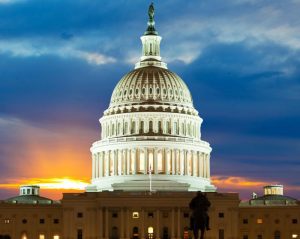The much-delayed next round of economic stimulus from the federal government is now a reality, as leaders in the U.S. Senate and House late Monday night passed a $900 billion pandemic relief package.
 It is the second-largest such package since the $2.2 trillion CARES Act was passed in March.
It is the second-largest such package since the $2.2 trillion CARES Act was passed in March.
Among its provisions:
- Issuing $600 stimulus checks for individuals who fall below a proscribed income level. Details have not been released, but under the CARES Act, $1,200 checks were sent to individual whose income was less than $99,000 (or $198,000 for joint filers), along with $500 per child under the age of 17. The new bill includes a $600 per child under 17 payment.
- Providing $300 weekly in additional unemployment benefits.
- Extending of the Pandemic Unemployment Assistance Program and the Pandemic Emergency Unemployment Compensation program, both of which are scheduled to expire at the end of this week.
- Re-establishing the Paycheck Protection Program via $284 billion to allow small businesses ”“ including nonprofits, local newspapers and radio and TV broadcasters ”“ to apply for a second loan. The amount of $12 billion has been set aside for minority-owned businesses and $15 billion for live performance venues, independent movie theaters and other cultural institutions.
- Providing $82 billion in aid for K-12 schools and colleges.
- Extending the eviction protection scheduled to expire at year”™s end to Jan. 31, and providing $25 billion in rental assistance for those who lost their jobs during the pandemic.
- Providing $20 billion for vaccine purchases, $8 billion for vaccine distribution, and another $20 billion for Covid-19 testing.
- Increasing Supplemental Nutrition Assistance Program benefits by 15% for six months.
“We have now reached agreement on a bill that will crush the virus and put money in the pockets of working families who are struggling,” House Speaker Nancy Pelosi (D-California) wrote to her fellow Democrats. “This emergency relief bill is an important initial step.”
In a separate statement, President-elect Joe Biden said he was “heartened” to see bipartisan agreement on the new package. “But this action in the lame-duck session is just the beginning,” he added. “Our work is far from over.”
“While $900 billion in Covid-19 relief is not enough, this package will help a lot of people in Connecticut and across the country,” said U.S. Sen. Chris Murphy (D-Connecticut). “This new funding will help small businesses keep their doors open. It will help our schools operate safely. It will help those who have lost their jobs. And it will help make sure that we”™re able to distribute the vaccine as quickly as possible to people in our state. I will support it when it reaches the Senate.”
“Washington is delivering a huge holiday gift to U.S. businesses and workers after an incredibly challenging year,” said U.S. Travel Association President and CEO Roger Dow. “The agreed-upon provisions will give many suffering businesses a bridge to 2021.
“More will be needed to restore the 4.5 million travel jobs lost in the travel and tourism industry,” he added, “but the process that produced this agreement is hopefully a positive sign for what will be possible to achieve in the next Congress. We urge swift action on this important legislation.”

















